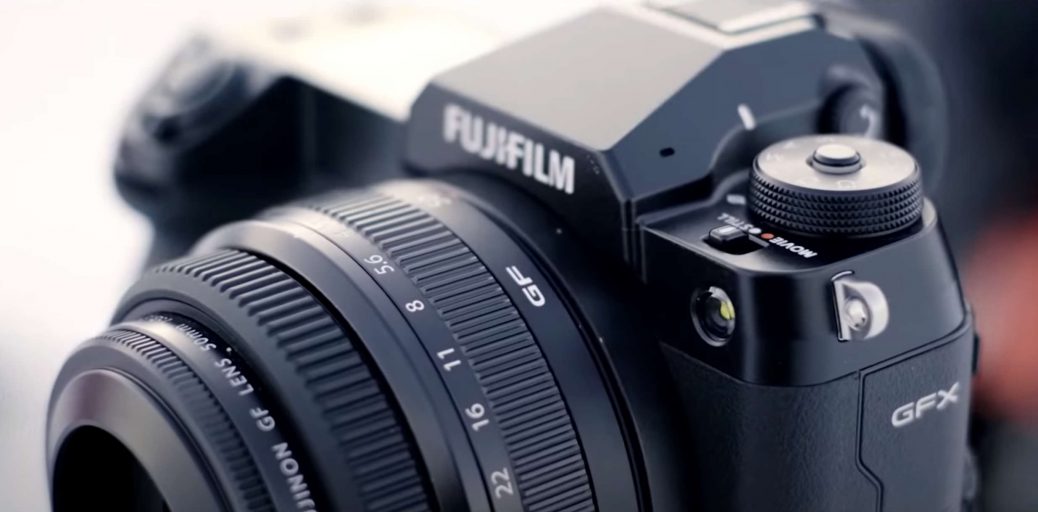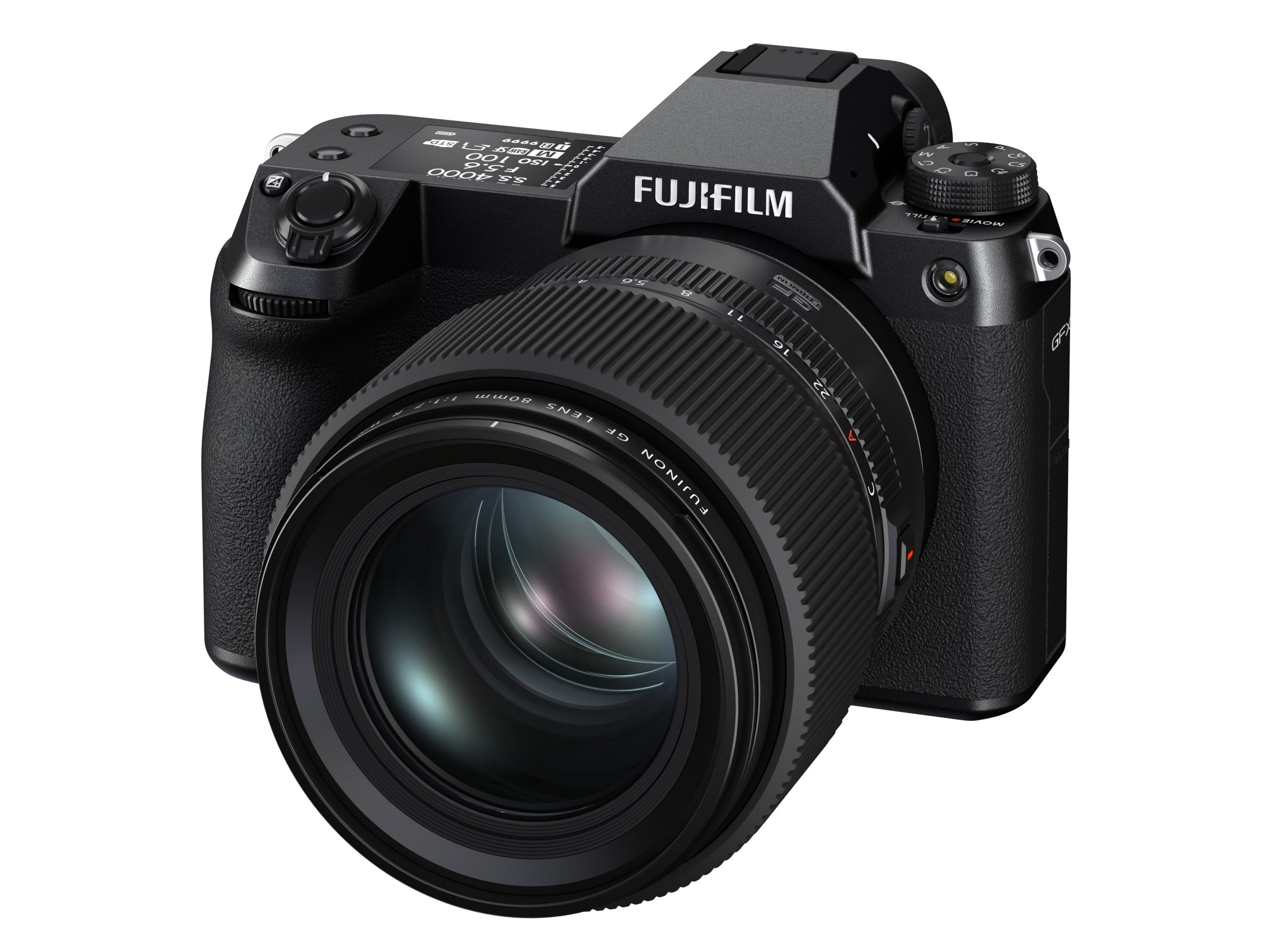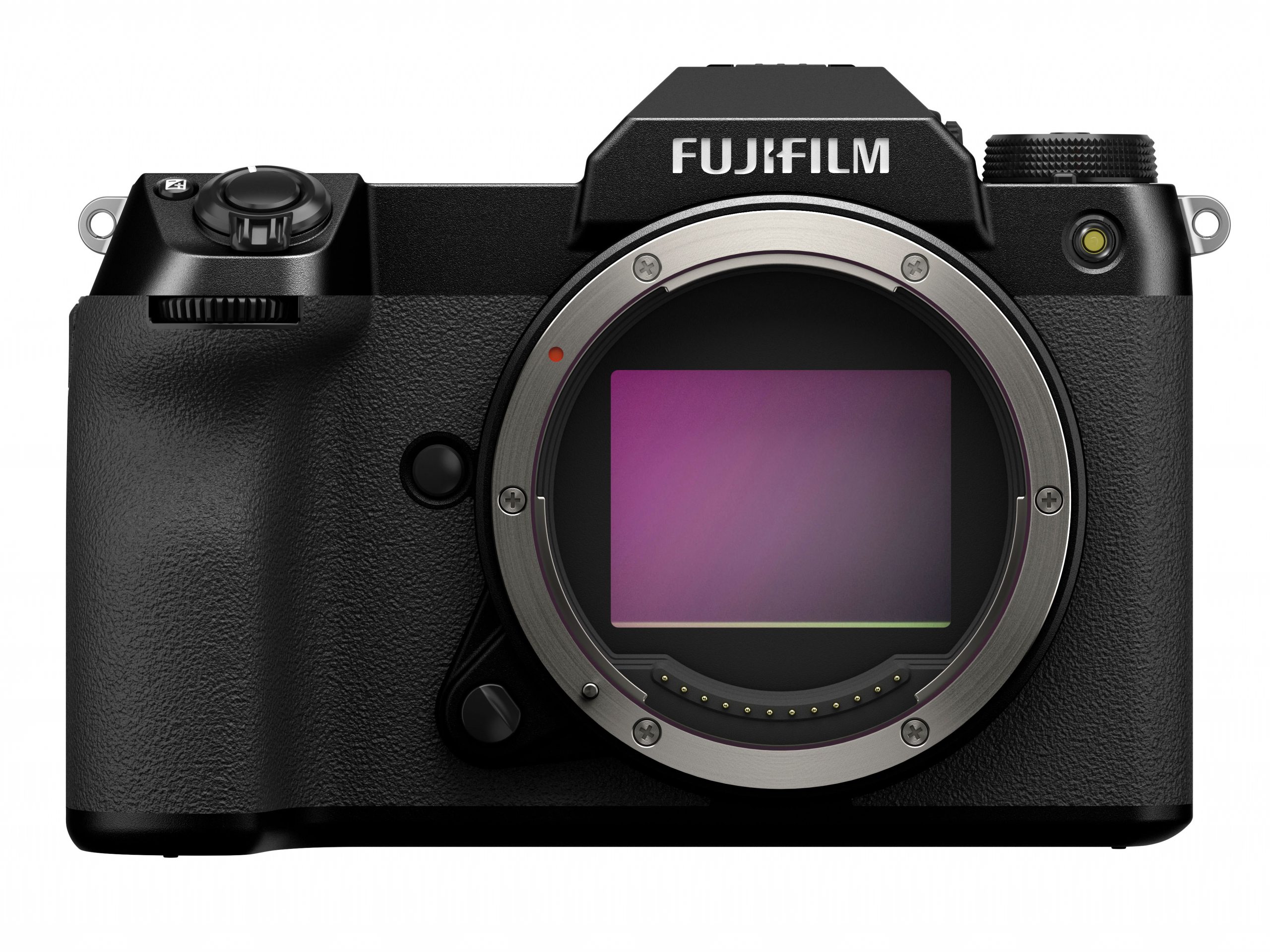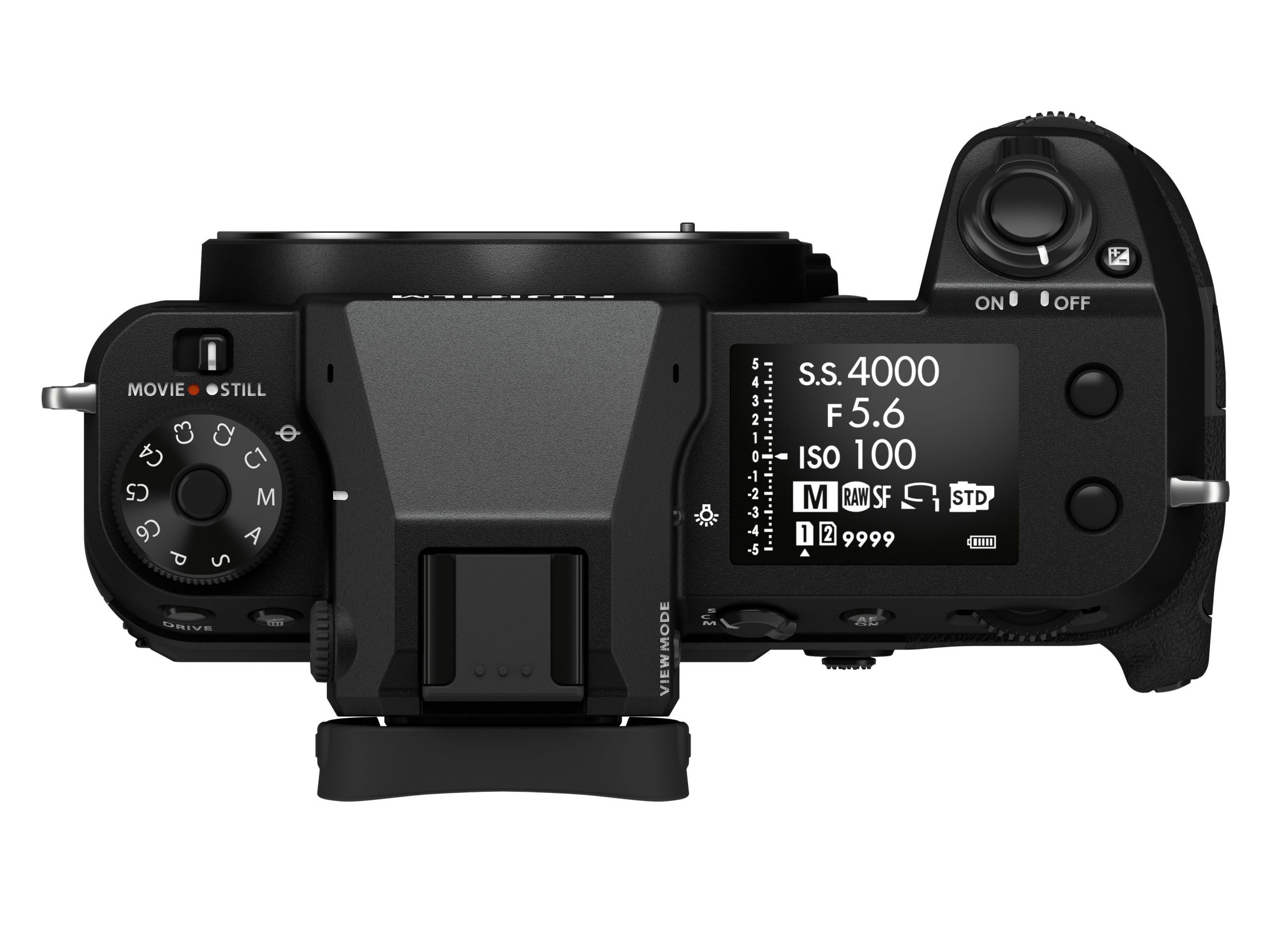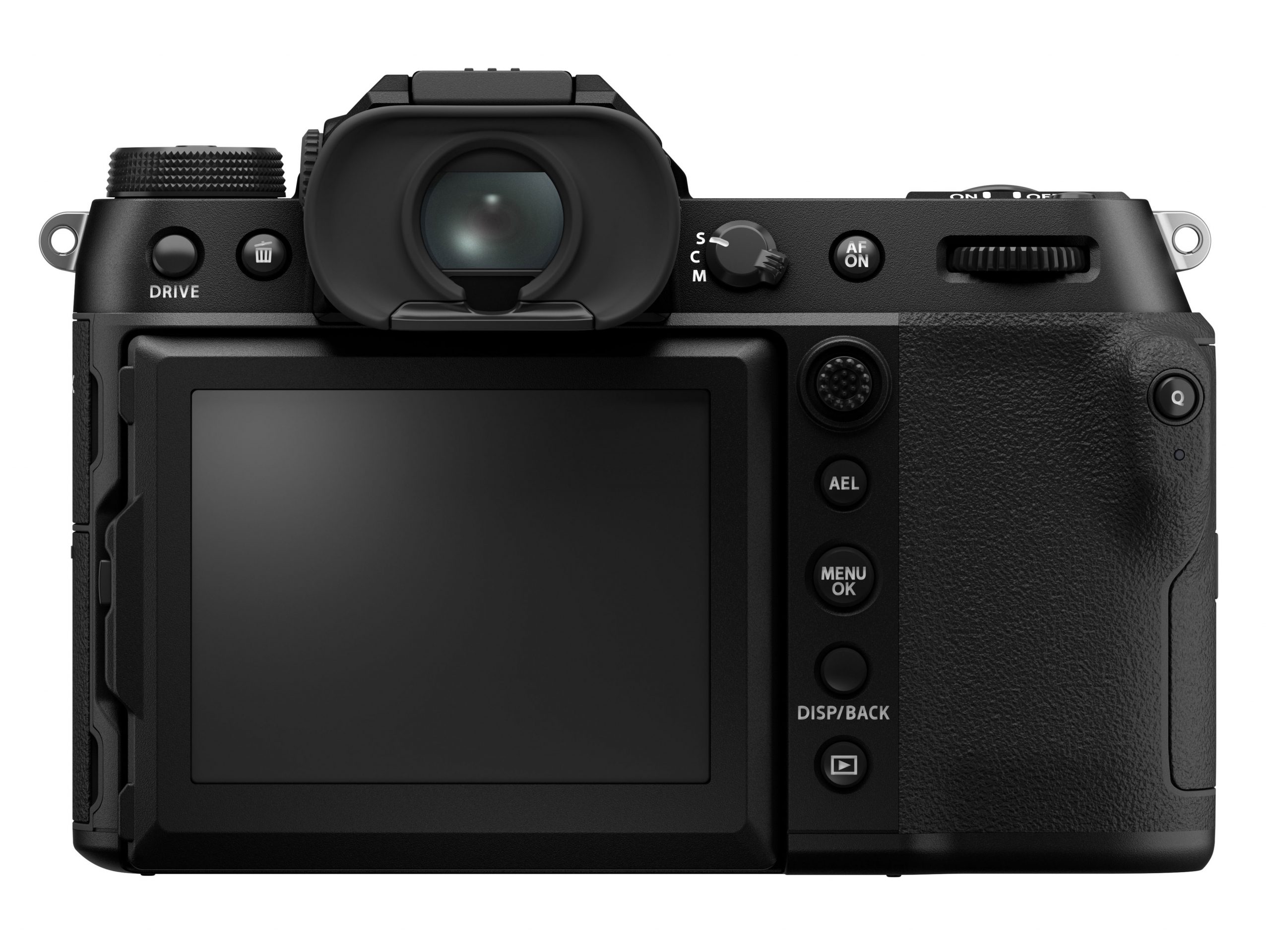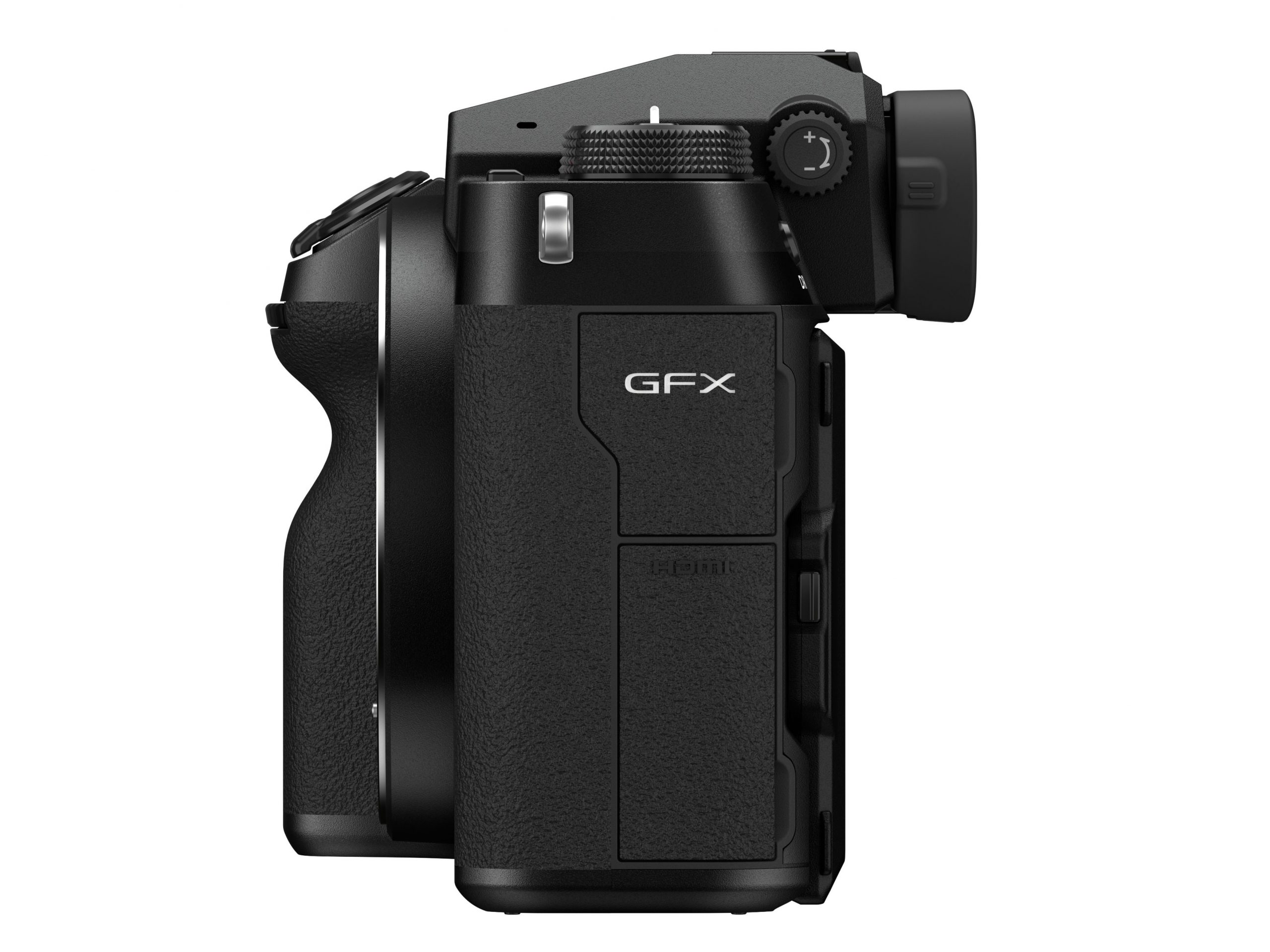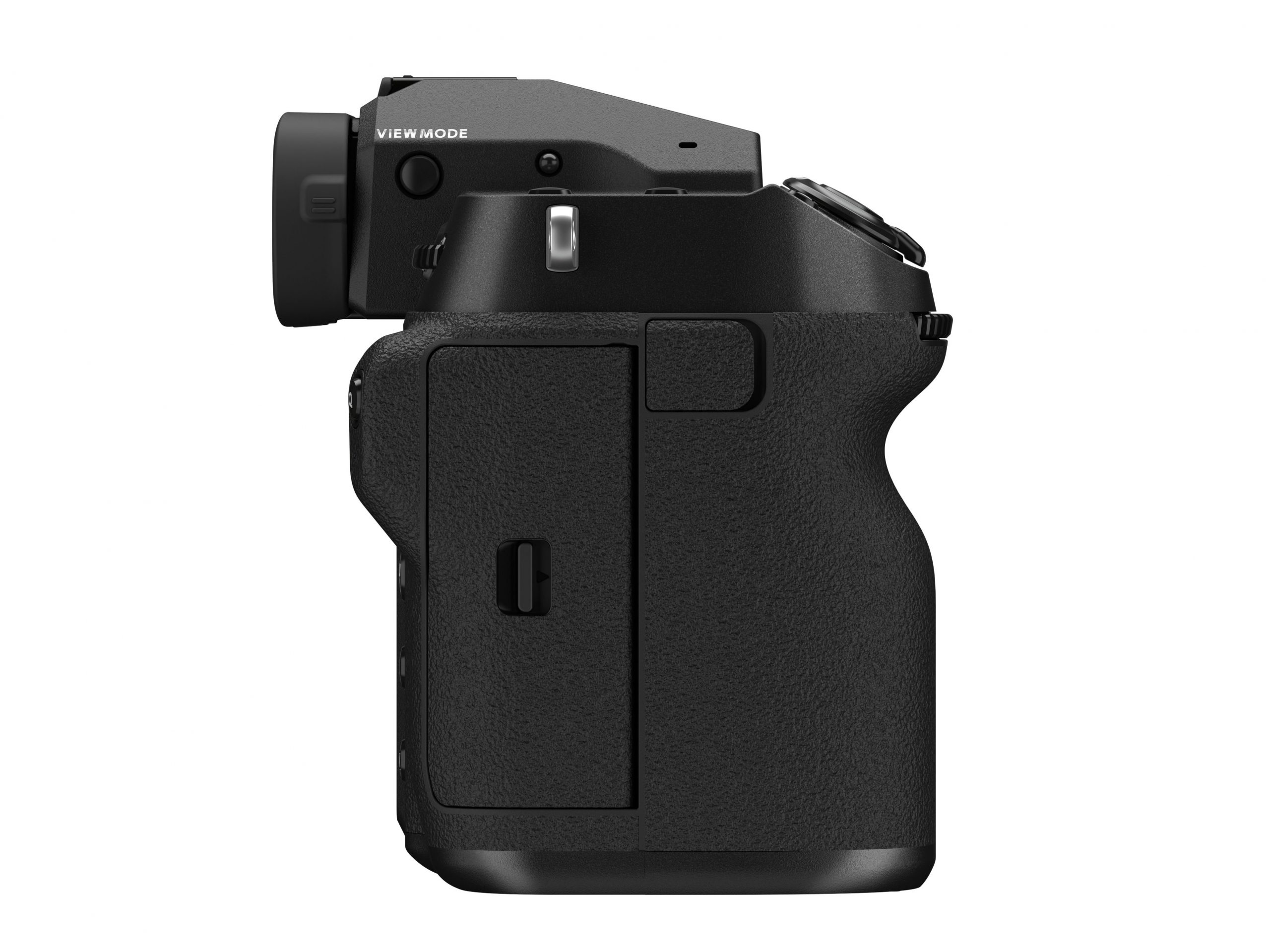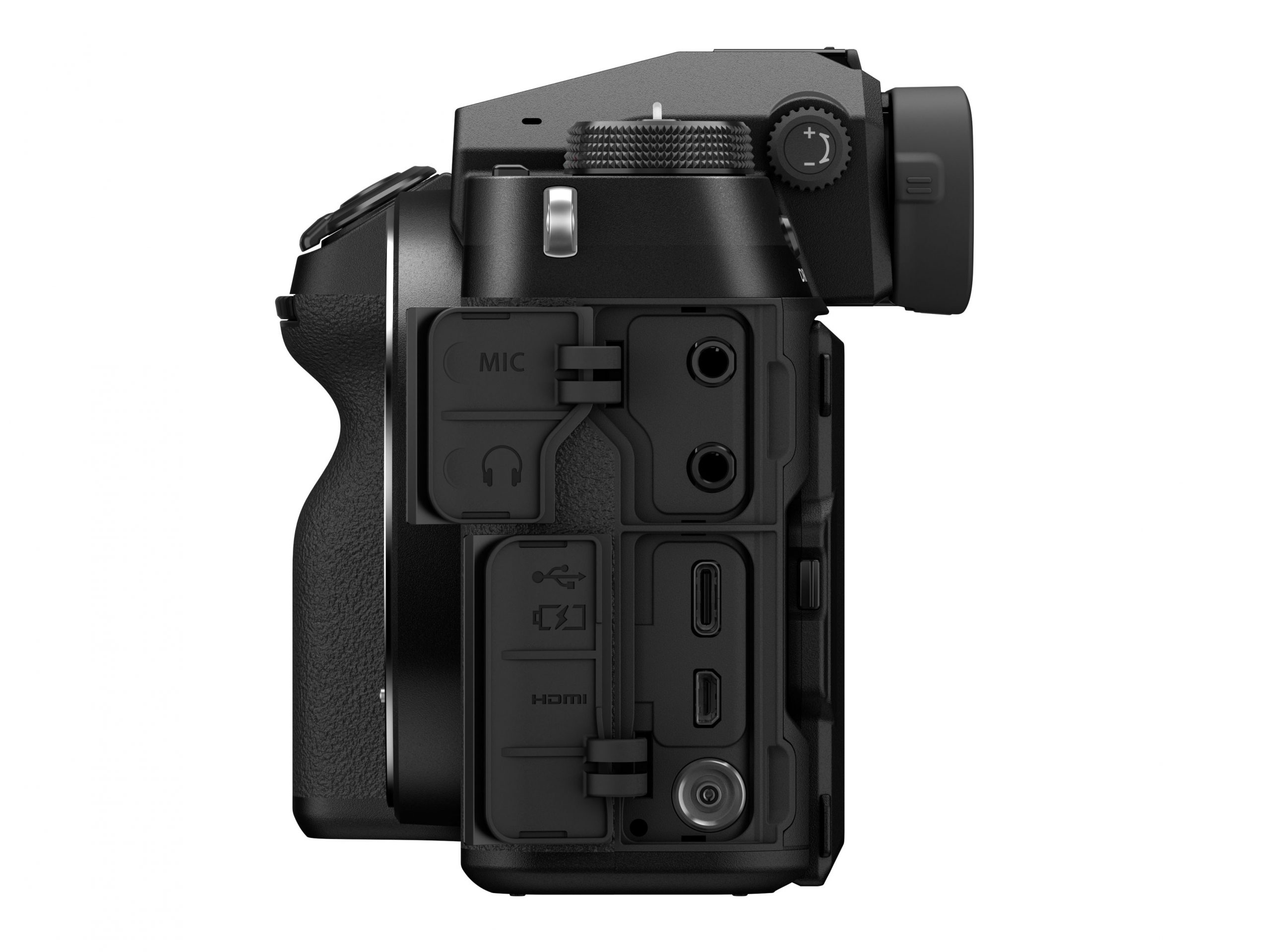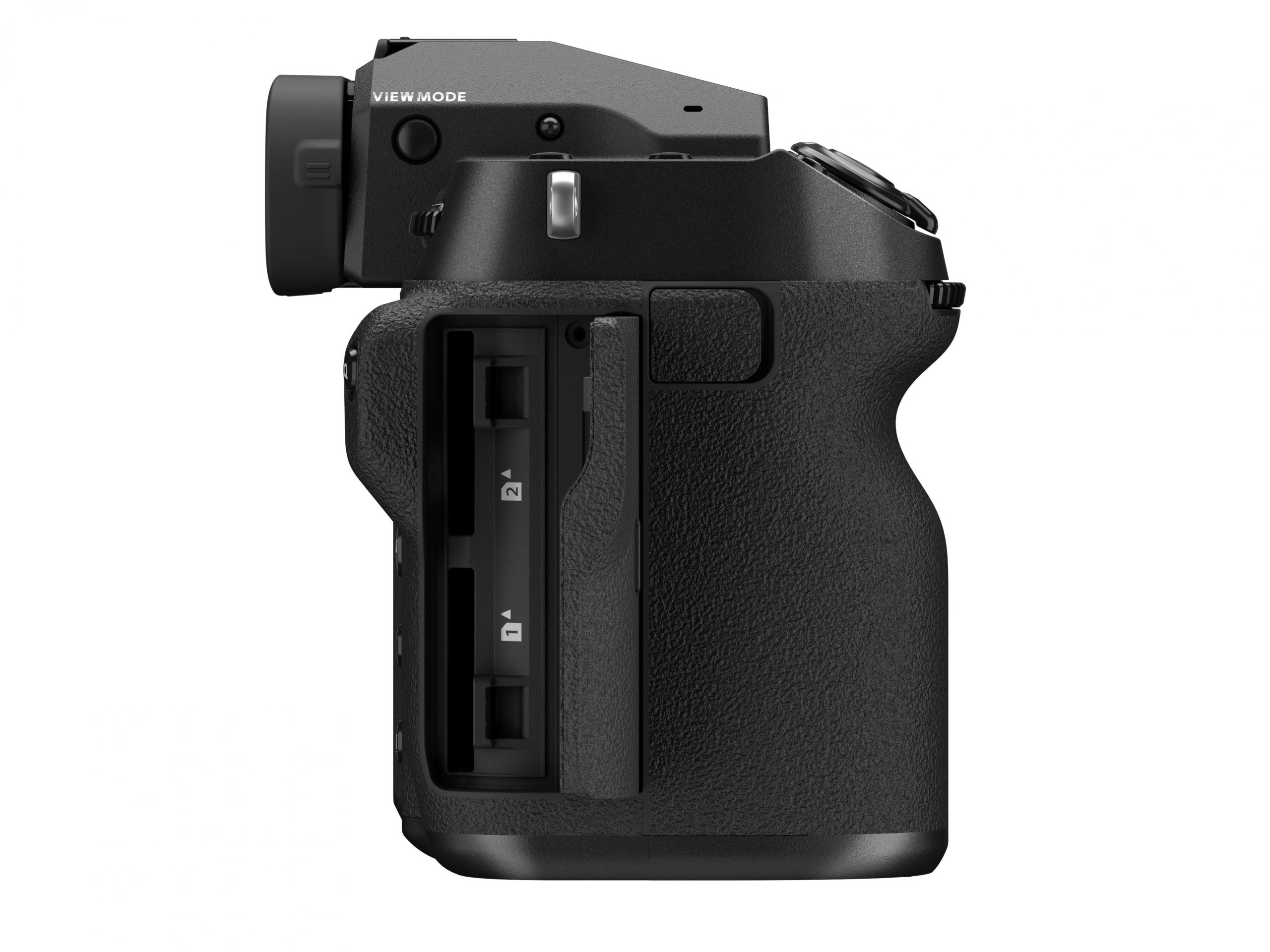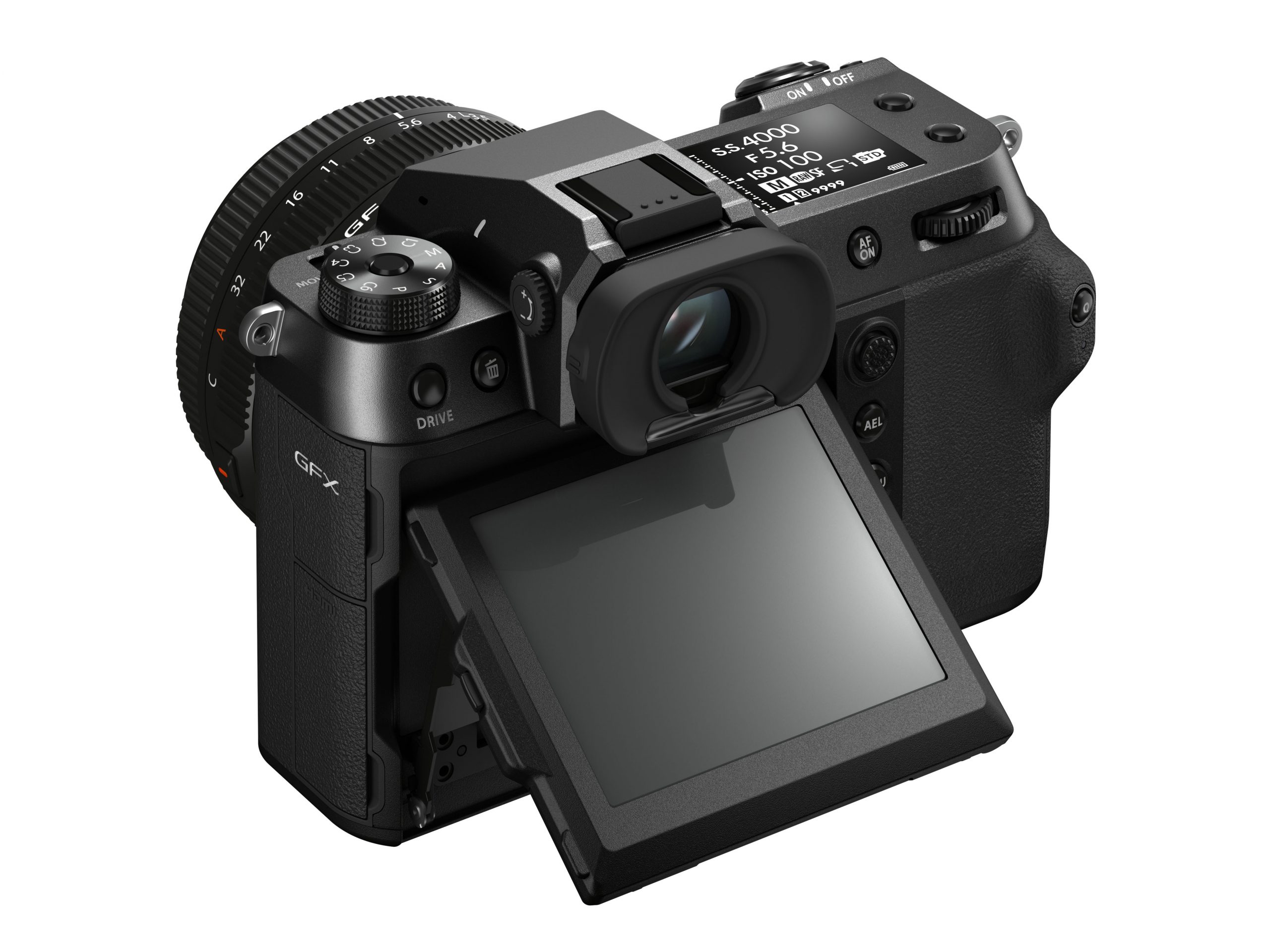Fujifilm Announces the New GFX100S Mirrorless Digital Camera
Fujifilm has unveiled the GFX 100S, a camera that takes the GFX100 and rethinks that with a focus on portability. The result is a compact, high-performance medium format camera that is similar in size to full-frame equivalents and weighs just 1.9 pounds.
“Fujifilm has taken the groundbreaking ideas that lead to the development of FUJIFILM GFX100 and now combined them with an approach rooted in portability, to create GFX100S – a camera that provides photographers and filmmakers with an unbelievable opportunity to take large-format image-making to places it has never been before,” said Victor Ha, senior director of marketing and product development for FUJIFILM North America Corporation, Electronic Imaging Division.
Main features:
- Powered by Fujifilm’s high-performance quad-core X-Processor 4 CPU, GFX100S utilizes its 102MP, back-illuminated large format CMOS sensor to deliver images with stunning quality. Compared to smaller, lower-resolution sensors commonly found in traditional full-frame DSLR and mirrorless cameras, the GFX100S’ imaging sensor is approximately 1.7 times larger and is enhanced to be incredibly sensitive to light. This provides it with a significant advantage over smaller sensors when it comes to producing images with incredibly shallow depth of field, fantastic dynamic range, faithful color reproduction, and outstanding, high-ISO performance.
- With a choice of 19 exclusive FUJIFILM Film Simulation modes, it is easy to achieve fantastic color straight out of the camera. GFX100S includes a new Film Simulation mode to explore – Nostalgic Neg. Reminiscent of American New Color Photography, which emerged in the 1970s, Nostalgic Neg continues this movement by enabling image-makers to explore the boundaries of photographic creativity through the deliberate use of color. “This Film Simulation mode adds an amber tone to highlights for a uniquely soft look and boosts saturation to shadows, while still preserving details, to deliver images that feel both familiar and unfamiliar all at the same time,” said Ha.
- On-sensor phase detection pixels cover almost 100% of GFX100S’s imaging sensor, unlocking a level of autofocus performance never before seen in large format digital photography. GFX100S can acquire focus in as little as 0.16 seconds, even in luminance levels as low as -5.5EV making it versatile, accurate, and incredibly fast. Powered by X-Processor 4, the camera is also easily able to efficiently make use of an updated focus tracking algorithm to keep subjects in focus when using the Tracking AF and Face/Eye AF functions.
- GFX100S features a newly designed IBIS system, which dramatically expands the capability of photographers to confidently create handheld images. Compared to the unit found in FUJIFILM GFX100, the IBIS mechanism inside of GFX100S is 20% smaller and 10% lighter. However, despite this reduction in size, the five-axis system provides 6-stops of CIPA-rated image stabilization, a 0.5-stop improvement over GFX100.
- Measuring 5.9in. wide, 4.09in. tall, and3.4in. deep(15cmx10.4cmx8.7cm), GFX100S’ compact body is comparable in size to many full-frame cameras. However, despite its compact size, it is still able to pack in a high-performance IBIS and a 102MP imaging sensor that is almost twice the physical size of a typical full-frame sensor. GFX100S features a redesigned shutter unit and a brand new IBIS unit, while taking advantage of a uniquely small, but very efficient lithium-ion battery. This results in a camera body that is approximately 2.3in (6cm) shorter and 1.1lb (500g) lighter than GFX100, but is able to maintain the same level of still image and video performance. To that end, the reduction in GFX100S’s physical size is well balanced by a highly robust grip, with a comfortable in-hand feel that makes it exceptionally easy to hold for extended periods of time.
- GFX100S is made to operate in temperatures as low as 14°F (-10°C) and to also be dust- and moisture-resistant. It is constructed with a magnesium alloy casing that is purposely 1mm denser around the lens mount as compared to GFX100, which provides added support for larger G Mount lenses.
- GFX100S features controls that will be familiar to GFX System photographers. For example, a PASM dial, with six programmable custom options, provides quick and direct access to frequently used settings, while a switch, conveniently located next to the mode dial, lets users quickly change between still and movie mode. An ergonomic update to the Focus Lever also makes choosing a focus point both easy and fluid.
- The camera features a 3.2in. LCD monitor on the rear and a 1.8 in. sub LCD monitor on its top plate, which can be customized to show key EXIF settings – like shutter speed, aperture, ISO sensitivity and exposure compensation – and set to display the status of key functions or available capacity on storage media. The 3.2 in., touch-capable LCD display is a 2.36-million-dot monitor with 100% coverage that can be tilted in three directions (90° up, 45° down, and 60° right).
- With its large format imaging sensor, GFX100S is capable of recording incredibly cinematic 4K/30p movies that feature incredible shallow depth-of-field, impressive high-ISO performance, wide tonal gradation, and overall image quality that is unmatched. Footage can be recorded at bit rates of up to 400Mbps in 10-bit 4:2:0 F-log internally saved to an SD card, or output to an external recording device via the camera’s HDMI port in either10-bit 4:2:2 F-Log or 12-bit RAW.
- In addition to being able to record 4K footage in a 16:9 aspect ratio, GFX100S also supports a 17:9 aspect ratio, frequently used in digital cinema. The most commonly used compression codecs, like H.264 and H.265 are also available. Additionally, professional standards, like REC.2100 supported Hybrid Log-Gamma (HLG), or F-Log can be selected for complete creative control. Compared to using commonly available compression codecs, like H.264, recording footage in F-Log or HLG gives filmmakers much more flexibility in post-production as the footage is brought through the editing and color grading process, and adjustments are made to luminance, color saturation, or any other image attribute.
- When using an Atomos Ninja V Monitor Recorder, GFX100S is also capable of outputting 4K/30P footage through its HDMI port that can also be saved as a 12-bit Apple ProRes RAW file. This allows for maximum flexibility in post-production when it comes to the color-grading process. Simultaneous output of RAW footage and footage in F-Log or Hybrid Log-Gamma (HLG) with a Film Simulation mode applied is also possible.
The GFX 100S will be available from March 2021 with a recommended sales price of $5,999, body only.
More info on Fujifilm’s website.

